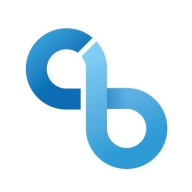

GitLab and CloudBees compete in the DevOps platform category, offering distinct solutions. GitLab stands out for its ease of use, CI/CD capabilities, and integration with Kubernetes, appealing to a wide range of users. CloudBees, built on Jenkins, excels in flexibility and pipeline automation, favored by large enterprises for its integration options.
Features: GitLab offers comprehensive CI/CD features, seamless integration with Kubernetes, and strong repository management. CloudBees is noted for its robust pipeline automation, Jenkins-based flexibility, and extensive tool integrations.
Room for Improvement: GitLab could enhance AWS integration, project management tools, and reporting features. CloudBees needs to improve plugin management and performance, especially across multiple pipelines, and refine its user interface.
Ease of Deployment and Customer Service: GitLab provides deployment flexibility across various cloud environments with responsive support, though response times can improve. CloudBees offers robust cloud deployment but users mention vendor dependency and desire more intuitive configuration.
Pricing and ROI: GitLab has flexible pricing, with free and premium tiers, offering significant ROI through efficiency and agility, making it cost-effective for smaller teams. CloudBees is more expensive but delivers value for large enterprises through enhanced security and automation, aligning with extensive feature support needs.
Migrating to GitLab is bringing time-saving benefits, and everything is easier to automate.
We have saved time significantly, reducing deployment time from four hours to five minutes per deployment.
We have rarely needed to escalate issues to technical support since GitLab usually runs seamlessly.
I have interacted with architects for some advice during the implementation, and they were prompt in their response.
I have had meetings where they taught me, explained things, and provided guidance for starting from scratch.
It has all the features required for our coding and deployment needs, which makes it scalable to our changing requirements.
We're transitioning to OpenShift for future scalability with increased user numbers.
For scaling, other deployment options from GitLab's side need to be adopted.
I have not encountered any performance or stability issues with GitLab so far.
The updates are frequent and demanding, happening at least once a week due to security reasons.
We raised a request with GitLab support, but they were unable to help because they could not find the root cause of what went wrong.
It would be beneficial to have a user-friendly interface for setting up these configurations, instead of just writing YAML files.
It is essential to conduct proper testing, such as unit tests and code coverage, within the SDLC pipelines.
GitLab can improve its user interface to make conflict resolution more user-friendly.
Even when working in other small organizations, we opted for GitLab as it was cost-efficient.
The pricing of GitLab is reasonable, aligning with what I consider to be average compared to competitors.
The price is high, and it limits user accessibility.
As we implement automated testing and DevSecOps, it speeds up the process by forty to sixty percent.
The Ultimate version offers enhanced features for security scanning through DAST and SAST analysis, which have greatly benefitted our project workflow.
By integrating GitLab as a DevOps platform, we have enhanced agility, improved our time to market, and different teams can work collaboratively on various projects.
| Product | Market Share (%) |
|---|---|
| GitLab | 12.2% |
| CloudBees | 1.7% |
| Other | 86.1% |


| Company Size | Count |
|---|---|
| Small Business | 1 |
| Midsize Enterprise | 3 |
| Large Enterprise | 17 |
| Company Size | Count |
|---|---|
| Small Business | 35 |
| Midsize Enterprise | 9 |
| Large Enterprise | 42 |
CloudBees provides a highly scalable and secure platform that supports seamless integration and automation across multiple environments. It excels in managing Jenkins instances and offers flexible deployment options, enhancing efficiency for large teams.
CloudBees is recognized for its integration with Jenkins, SonarQube, and Ansible, allowing companies to leverage its robust automation capabilities for continuous integration and deployment. With its strong support for Docker and Kubernetes, teams benefit from streamlined code management and operational efficiency. Its scalable architecture, real-time feedback, and premium vendor support help manage large-scale applications and microservices. Despite its strengths, users report challenges with pipeline setup, service availability, and GUI accessibility, which suggest room for improvement in these areas.
What are the key features of CloudBees?In tech and software industries, companies implement CloudBees for managing complex CI/CD pipelines. Its integration with DevOps tools facilitates automation and workflow optimization. Industries with large teams managing thousands of microservices use CloudBees to maintain high availability, streamline processes, and ensure security compliance, driving efficient production workflows.
GitLab offers a secure and user-friendly platform for CI/CD pipeline management, code repository control, and collaboration, enhancing development speed and efficiency. It facilitates automation with extensive customization and tool integration, ideal for DevOps processes.
GitLab supports source code management, version control, and collaborative development. It's frequently used in CI/CD processes to automate builds and deployments while integrating DevOps practices. GitLab allows companies to manage repositories, automate pipelines, conduct code reviews, and maintain development lifecycles. The platform supports infrastructure and configuration management, enabling efficient code collaboration, deployment automation, and comprehensive repository handling. Many organizations commit and deploy developed code using GitLab's capabilities.
What are GitLab's most valuable features?In specific industries, GitLab serves as a backbone for source code management and CI/CD implementation. Companies leverage its capabilities for infrastructure management and deployment automation, thus streamlining project delivery timelines. Its ability to handle configuration management and code repositories effectively aids in maintaining development lifecycles, making it a preferred choice for organizations committed to enhancing their DevOps practices.
We monitor all Build Automation reviews to prevent fraudulent reviews and keep review quality high. We do not post reviews by company employees or direct competitors. We validate each review for authenticity via cross-reference with LinkedIn, and personal follow-up with the reviewer when necessary.